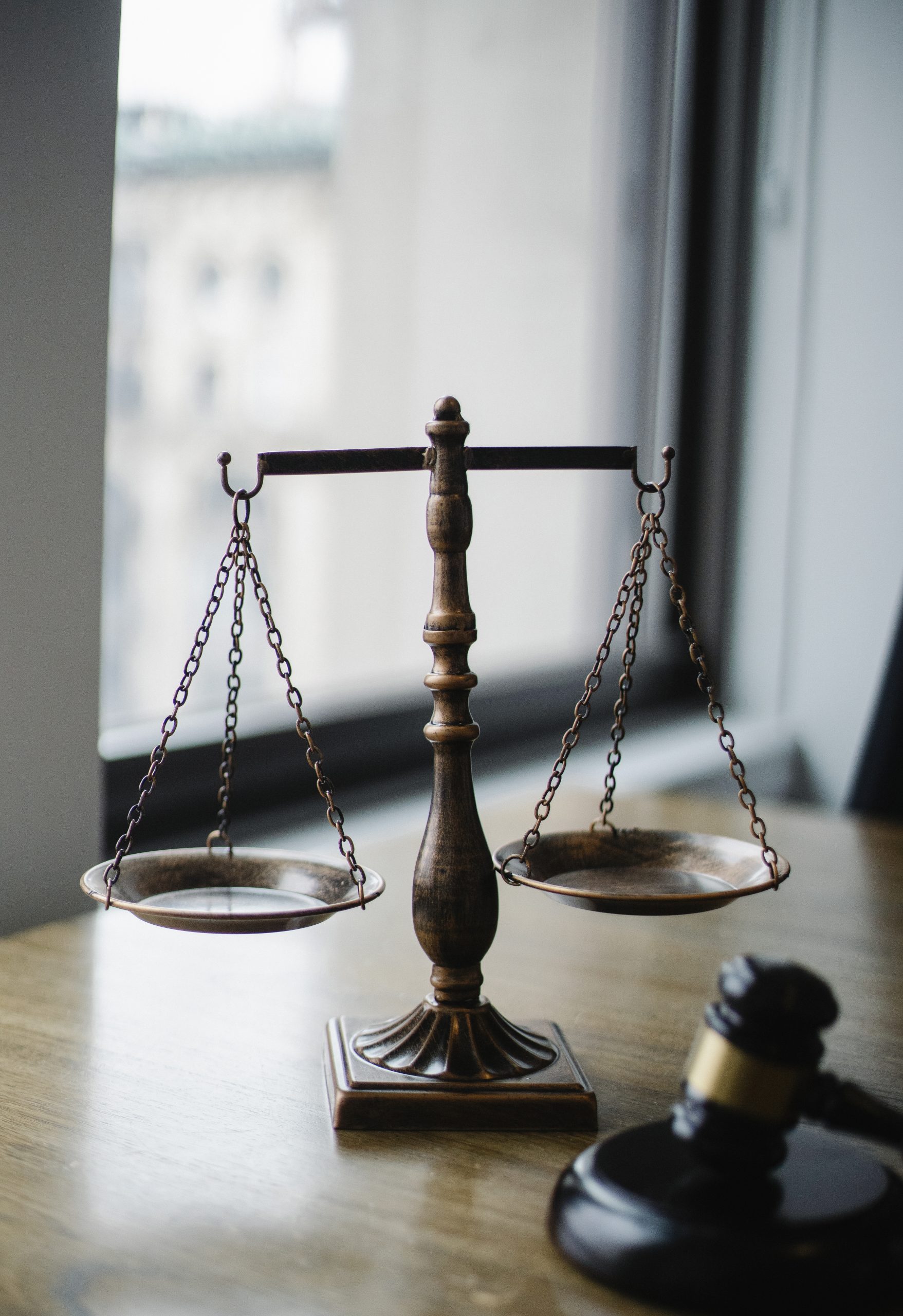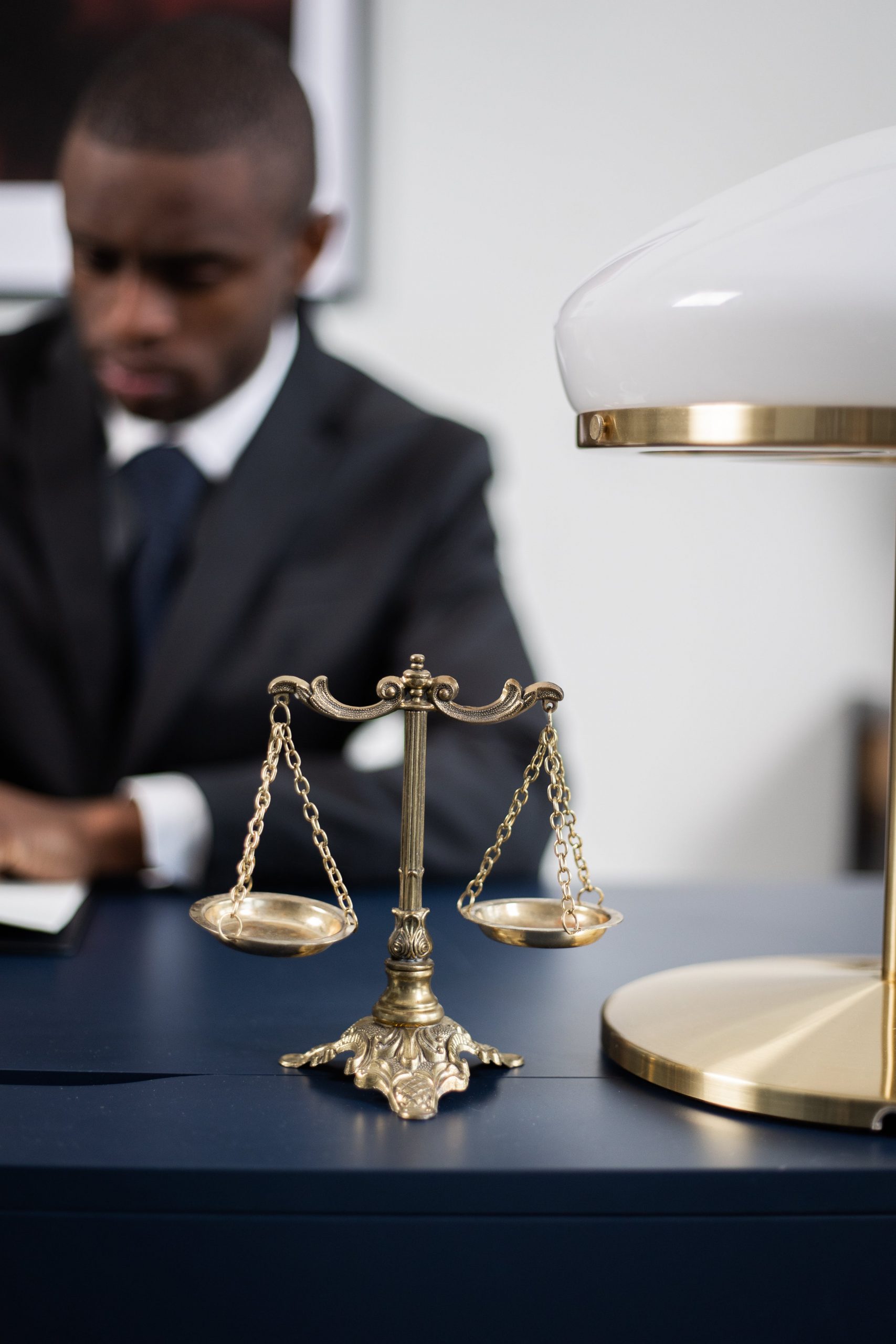If you find yourself in a situation where you need legal assistance regarding guardianship matters in Draper, Utah, look no further than Guardianship Lawyer Jeremy Eveland. With expert knowledge in this area of law, Jeremy Eveland is dedicated to providing comprehensive and exhaustive legal support to those in need. Whether you are seeking guardianship for a loved one or need guidance in navigating the complexities of the legal system, Jeremy Eveland is the lawyer to call. Trust in his expertise to ensure that your guardianship proceedings are handled with care and professionalism.

Overview of Guardianship Laws in Utah
Utah, like many other states, has specific laws in place regarding guardianship. These laws are designed to protect individuals who are unable to make important decisions for themselves and ensure that their needs are met. Understanding the purpose of guardianship, the types of guardianships available in Utah, the requirements for becoming a guardian, and the role of a guardianship lawyer can help you navigate this complex legal process.
Understanding the Purpose of Guardianship
The purpose of guardianship is to protect individuals who are unable to make decisions for themselves due to various reasons, such as incapacitation, age, or mental health issues. A guardian is appointed to act in the best interests of the person, known as the ward, and make decisions about their care, finances, and overall well-being. The goal of guardianship is to ensure that the ward receives the necessary support and protection they require.
Types of Guardianships in Utah
In Utah, there are different types of guardianships, each serving a specific purpose. The most common types include guardianship of incapacitated adults, guardianship of minors in need of care, and guardianship of elderly individuals with dementia or Alzheimer’s.
Guardianship of incapacitated adults is established when an individual is unable to make decisions regarding their personal or financial matters due to a physical or mental condition. This type of guardianship allows the appointed guardian to make these decisions on behalf of the incapacitated adult.
Guardianship of minors in need of care involves a guardian being appointed to care for a minor who has been neglected, abused, or is in need of parental care. The guardian takes on the responsibilities typically held by a parent, including providing for the child’s physical, emotional, and educational needs.
Guardianship of elderly individuals with dementia or Alzheimer’s is established when an older person is diagnosed with these conditions and cannot make decisions regarding their care or finances. The guardian steps in to ensure that the elderly individual’s needs are met and their best interests are protected.
Requirements for Becoming a Guardian
Becoming a guardian in Utah requires meeting certain requirements set forth by the state. First and foremost, the individual seeking guardianship must be at least 18 years old and be of sound mind. They must also have no felony convictions, as this could raise concerns about their ability to fulfill their duties as a guardian.
Additionally, the proposed guardian must undergo a background check to ensure that they do not have any disqualifying factors that may prevent them from effectively carrying out their responsibilities. This process helps safeguard the interests of the ward and ensures that only suitable individuals are appointed as guardians.

The Role of a Guardianship Lawyer
Navigating the complex legal process of establishing guardianship can be overwhelming, which is why it’s essential to enlist the help of a knowledgeable and experienced guardianship lawyer. A guardianship lawyer can guide you through the process, educate you on the legal requirements, and advocate for the best interests of the ward.
A guardianship lawyer is well-versed in Utah guardianship laws and can provide valuable advice and guidance at each step. They can assist with drafting and filing the necessary legal documents, representing you during hearings, and addressing any challenges or disputes that may arise.
When Is Guardianship Necessary?
Guardianship is necessary in various situations when individuals are unable to make decisions for themselves and require someone to act in their best interests. Some common scenarios where guardianship may be necessary include incapacitated adults, minors in need of care, and elderly individuals with dementia or Alzheimer’s.
Incapacitated Adults
When an adult becomes incapacitated due to a physical or mental condition, they may require a guardian to make decisions on their behalf. Incapacitation can result from accidents, illnesses, or progressive conditions that impair the individual’s ability to make sound decisions regarding their personal or financial matters.
A guardian can step in to ensure that the incapacitated adult’s needs are met, their estate is managed appropriately, and their overall well-being is protected. This may include making healthcare decisions, managing finances, and ensuring they receive necessary medical treatments and support.
Minors in Need of Care
Minors who have been neglected, abused, or are in need of parental care may require a guardian to intervene and provide the necessary support. In such cases, the guardian takes on the responsibilities typically held by a parent, including providing a safe and nurturing environment, ensuring the child’s physical and emotional needs are met, and making decisions about their education and healthcare.
Guardianship of a minor in need of care can arise from various circumstances, such as parental drug addiction, physical or emotional abuse, or neglect. The guardian plays a crucial role in advocating for the child’s best interests and providing them with a stable and secure living situation.
Elderly Individuals with Dementia or Alzheimer’s
As individuals age, they may develop conditions such as dementia or Alzheimer’s that affect their cognitive abilities. In these cases, guardianship may be necessary to ensure that their needs are met and their best interests are protected. Elderly individuals with these conditions may struggle to make decisions regarding their care, finances, or medical treatments.
A guardian appointed for an elderly individual with dementia or Alzheimer’s can make important decisions on their behalf, manage their assets and finances, and ensure they receive the necessary care and support. This allows the individual to maintain their dignity and quality of life while safeguarding their overall well-being.
The Process of Establishing Guardianship
Establishing guardianship involves several steps to ensure that the interests of the ward are protected and that the proposed guardian is suitable for the role. The process typically includes filing a petition for guardianship, notifying interested parties, evaluating the proposed guardian, and attending guardianship hearings.
Filing a Petition for Guardianship
To initiate the guardianship process, the individual seeking guardianship must file a petition with the appropriate court. The petition provides information about the ward, the reasons why guardianship is necessary, and the proposed guardian’s qualifications. It is essential to complete the petition accurately and thoroughly to ensure that all relevant information is provided.
Notifying Interested Parties
Once the petition is filed, interested parties must be notified of the guardianship proceedings. This typically includes the ward, close family members, and any other individuals who may have a significant interest in the outcome. This notice ensures that interested parties have an opportunity to object to the guardianship if they believe it is not in the best interests of the ward.
Evaluating the Proposed Guardian
As part of the process, the court will evaluate the proposed guardian to ensure that they are suitable for the role. This evaluation may involve a background check, interviews, and a review of the proposed guardian’s qualifications and ability to fulfill their responsibilities.
The court’s evaluation is crucial in determining whether the proposed guardian has the necessary skills, knowledge, and character to act in the best interests of the ward. If any red flags or concerns arise during the evaluation, the court may choose to appoint a different guardian or require additional information before making a decision.
Attending Guardianship Hearings
Guardianship hearings are typically held to gather more information, address any disputes or concerns, and determine whether guardianship is necessary. These hearings provide an opportunity for interested parties to present their arguments and evidence regarding the proposed guardianship.
Attending guardianship hearings is essential to ensure that your interests and those of the ward are represented. A guardianship lawyer can help prepare you for these hearings, advocate on your behalf, and present a strong case to the court.
Challenges to Guardianship
Guardianship proceedings can sometimes face challenges and disputes that need to be resolved in court. These challenges can arise from disputes among family members, allegations of abuse or neglect, or objections from the ward themselves.
Disputes Among Family Members
Family members may have differing opinions about who should be appointed as the guardian or how the ward’s interests should be protected. These disputes can lead to contentious legal battles and delays in establishing guardianship. It is crucial to address these disputes with compassion and seek resolution to ensure that the ward’s best interests are at the forefront.
A guardianship lawyer can navigate these disputes and help find common ground or present arguments that support the appointment of a specific guardian. Their experience in handling family disputes can be invaluable in finding solutions and ensuring a fair outcome for all parties involved.
Allegations of Abuse or Neglect
In some cases, allegations of abuse or neglect may be raised in connection with the proposed guardianship. These allegations can significantly impact the court’s decision and may require investigations or evaluations to determine their validity.
Addressing allegations of abuse or neglect properly is essential to protect the ward’s well-being. A guardianship lawyer can help gather evidence, present a defense, or advocate for the appointment of a different guardian if necessary. Their expertise in handling sensitive issues can help ensure a fair and just outcome.
Objections from the Ward
In certain situations, the ward themselves may object to the establishment of guardianship or the appointment of a specific guardian. This can make the process more complicated and require the court to assess the ward’s capacity to make decisions.
When facing objections from the ward, it is essential to respect their wishes while also considering their best interests. A guardianship lawyer can help navigate these challenges and ensure that the ward’s rights and autonomy are protected throughout the process.

The Duties and Responsibilities of a Guardian
A guardian’s role involves a wide range of duties and responsibilities to ensure the ward’s safety, well-being, and best interests are protected. These duties typically include ensuring the ward’s safety and well-being, managing their finances, and making healthcare and educational decisions.
Ensuring the Ward’s Safety and Well-being
One of the primary responsibilities of a guardian is to ensure the ward’s safety and well-being. This includes providing a stable and suitable living environment, addressing any medical or mental health needs, and ensuring that the ward’s day-to-day needs are met.
A guardian should advocate for the ward’s best interests, monitor their living situation, and address any concerns or issues that may arise. Regular communication and monitoring of the ward’s well-being are essential to fulfill this duty effectively.
Managing the Ward’s Finances
A guardian is responsible for managing the ward’s finances and assets in a way that benefits the ward. This includes ensuring that bills are paid, taxes are filed correctly, and the ward’s assets are protected. Financial management also involves making prudent investments and ensuring that the ward’s financial resources are used appropriately.
It is crucial for a guardian to keep detailed records of all financial transactions and assets, as they may be required to report to the court periodically. Transparency and accuracy are key when managing the ward’s finances.
Making Healthcare and Educational Decisions
Another significant responsibility of a guardian is making important healthcare and educational decisions on behalf of the ward. This may include choosing and interacting with healthcare providers, making treatment decisions, and advocating for the ward’s medical needs.
In the case of minors, a guardian is responsible for enrolling the child in appropriate educational programs and ensuring that their educational needs are met. This may involve working with school administrators, attending parent-teacher conferences, and making decisions about the child’s education.
Terminating Guardianship
There may come a time when guardianship is no longer necessary or suitable for the ward. In such cases, it is important to understand the process of terminating guardianship.
Succession Planning
Terminating guardianship may involve succession planning, especially if the ward is transitioning to another guardian or care arrangement. Proper succession planning ensures a smooth transition and safeguards the ward’s well-being during the transfer of responsibilities.
Releasing a Guardian from Duties
In some cases, a guardian may request to be released from their duties due to personal reasons or changes in circumstances. Releasing a guardian from their duties requires following the proper legal procedures and ensuring that the ward’s best interests continue to be protected.
Emergency Termination of Guardianship
In certain situations, emergency termination of guardianship may be necessary if the ward’s safety or well-being is at risk due to neglect, abuse, or other extenuating circumstances. This is a serious matter that requires immediate action and should be handled with the utmost care and concern for the ward’s well-being.
Choosing the Right Guardianship Lawyer
Choosing the right guardianship lawyer is crucial to ensure a smooth and successful guardianship process. When selecting a guardianship lawyer, consider the following factors:
Experience in Guardianship Cases
Look for a lawyer who has experience in handling guardianship cases. A lawyer with a track record of successfully navigating complex guardianship proceedings will have the knowledge and skills necessary to handle your case effectively.
Knowledge of Utah Guardianship Laws
Make sure the lawyer you choose is familiar with Utah guardianship laws. Each state may have specific requirements and procedures, and having a lawyer who understands the intricacies of Utah guardianship laws can help ensure your case proceeds smoothly.
Positive Track Record
Look for a guardianship lawyer with a positive track record of achieving favorable outcomes for their clients. Client testimonials and reviews can provide valuable insights into a lawyer’s reputation and effectiveness in handling guardianship cases.
Ability to Communicate Effectively
Effective communication is essential when working with a guardianship lawyer. Choose a lawyer who communicates clearly and promptly, listens to your concerns, and provides regular updates on the progress of your case. Clear and open communication fosters trust and ensures that your needs are understood and met throughout the guardianship process.
The Benefits of Hiring a Guardianship Lawyer
Hiring a guardianship lawyer offers numerous benefits when navigating the complex legal procedures associated with establishing guardianship. Some of the key benefits include:
Navigating Complex Legal Procedures
Establishing guardianship can involve intricate legal procedures and requirements. A guardianship lawyer can guide you through these processes, ensuring that all necessary documents are filed correctly and on time. Their expertise and knowledge of the legal system can make the process less daunting and increase the likelihood of a successful outcome.
Protection of the Ward’s Interests
A guardianship lawyer is dedicated to protecting the ward’s best interests throughout the entire guardianship process. They act as advocates, ensuring that the decisions made align with the ward’s needs and wishes. Having a lawyer by your side provides an added layer of protection for the ward, giving you peace of mind and confidence in the decisions being made.
Avoiding Costly Mistakes
The guardianship process involves various legal and administrative requirements that must be met. Making mistakes or overlooking key details can result in delays, disputes, or even unsuccessful guardianship petitions. By hiring a guardianship lawyer, you can minimize the risk of costly mistakes and ensure that all necessary steps are taken to establish guardianship successfully.
Frequently Asked Questions about Guardianship
How long does the guardianship process take?
The duration of the guardianship process can vary based on several factors, including the complexity of the case, the court’s schedule, and any disputes or objections that may arise. Typically, the process can take several months from the filing of the initial petition to the final establishment of guardianship. Working with a guardianship lawyer can help expedite the process and ensure that all necessary steps are completed efficiently.
Can a guardian be held financially responsible for the ward’s debts?
No, a guardian is not personally responsible for the ward’s debts. However, the guardian is responsible for managing the ward’s finances and ensuring that their debts and financial obligations are paid from the ward’s assets. The guardian must act in the ward’s best interests when handling their finances and should seek legal advice if unsure about any financial obligations.
Can guardianship be transferred to another state?
Yes, guardianship can be transferred to another state under certain circumstances. The Uniform Adult Guardianship and Protective Proceedings Jurisdiction Act (UAGPPJA) allows for the transfer of guardianship proceedings to another state if the ward relocates or if it is in the ward’s best interests to do so. Working with a guardianship lawyer who has experience in interstate guardianship transfers can help ensure a smooth transition.
Contacting Guardianship Lawyer Jeremy Eveland
If you are in need of legal assistance with a guardianship matter in Utah, contact Guardianship Lawyer Jeremy Eveland. With years of experience and a track record of success, Jeremy Eveland is a trusted legal professional who can guide you through the guardianship process. Schedule a consultation to discuss your guardianship needs and explore the available legal options to protect the best interests of the ward.


